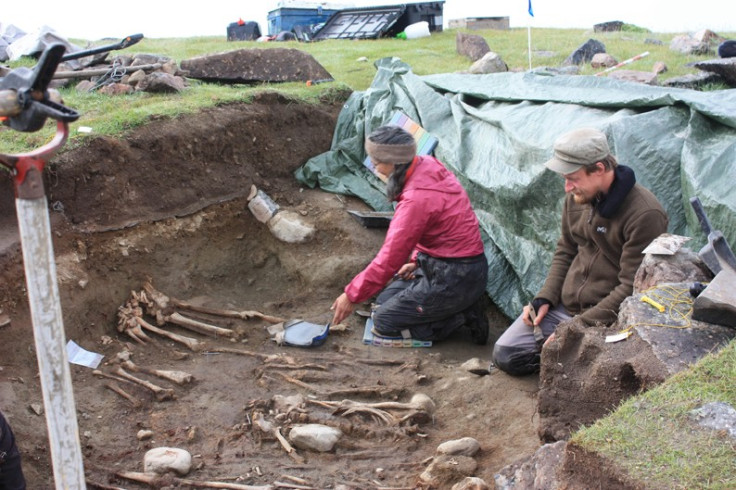Viking Settlers Left Greenland 'out of Boredom with Seal Diet'

Around 500 years ago, Viking settlers in Greenland - the Norse - disappeared mysteriously and many theories about their sudden departure have been proposed since.
Now, however, scientists think the reason was simple culinary tedium - the settlers may have just got bored with feasting on seals all the time. The marine mammals formed up to 80 percent of the Norse diet.
Researchers from Aarhus University, the University of Copenhagen, the National Museum of Denmark and the University in Vancouver found that the Norse society did not die out because they could not adapt to the limited food options in Greenland.
Jan Heinemeier, of Aarhus University, said: "Our analysis shows that the Norse in Greenland ate lots of food from the sea, especially seals.
"Even though the Norse are traditionally thought of as farmers, they adapted quickly to the Arctic environment and the unique hunting opportunities.
"During the period they were in Greenland, the Norse ate gradually more seals. By the 14th century, seals made up between 50 and 80 per cent of their diet."
Originally, it was thought the Norse farmers would have stubbornly stuck to agriculture as a means of food. Scientists thought they would have done this until they could no longer cope with Greenland's icy environment.
By examining Norse skeletons, the researchers could work out what the Vikings ate. As the findings show they did not go hungry, scientists think they may have simply got bored with living on seals and moved away.
Niels Lynnerup, from the University of Copenhagen, said: "Nothing suggests that the Norse disappeared as a result of a natural disaster. If anything they might have become bored with eating seals out on the edge of the world.
"The skeletal evidence shows signs that they slowly left Greenland. For example, young women are under-represented in the graves in the period toward the end of the Norse settlement.
"This indicates that the young in particular were leaving Greenland, and when the numbers of fertile women drops, the population cannot support itself."
Jette Arneborg, archaeologist and curator at the National Museum of Denmark, said evidence shows the Norse kept fewer and fewer animals, such as sheep and goats. Their identity as farmers, was, therefore, more of an image kept in place by a higher class to maintain power through land ownership. In reality, the Norse were not "picky eaters", she said.
"The Norse could adapt, but how much they could adapt without giving up their identity was limited. Even though their diet became closer to that of the Inuit, the difference between the two groups was too great for the Norse to become Inuit."
Previous theories about the Norse departure from Greenland include a natural disaster, climate change and an inability to adapt.
© Copyright IBTimes 2025. All rights reserved.





















